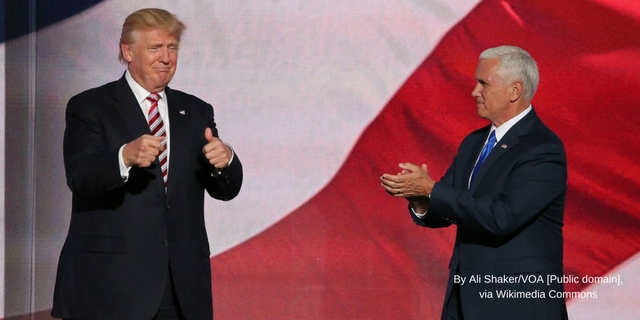Throughout his campaign, U.S. President-Elect, Donald Trump, has stated that the cost of a college education concerns him. He suggests that one way to keep higher education affordable is to cap student loan repayments at a maximum of 12.5% of the borrower’s annual income. Those in favor of this idea believe that this approach, along with other proposals being considered by the U.S. Department of Education, may help reverse five years of declining American enrollment. The hope that this plan will also allow college graduates more discretionary income and to save for down payments on major purchases such as cars and homes.
Are International Students’ Fears Legitimate?
Many international students fear that Trump’s victory has granted false legitimacy to white America’s prejudices, and fear of immigrants. Several foreign students attending some of the best colleges in the United States say they would have gone to the U.K. or Canada had they have foreseen the outcome of this election. Needless to say, Mr. Trump’s rhetoric is not helping attract international students in search of a quality education in a safe and welcoming environment.
Trump’s perceived anti-immigration bias has also sparked fears that internships and practical training opportunities may no longer be so readily available to international students; so much so, that some no longer bother to apply for practical training associated with their studies. For this reason, we project that applications for OPT (Optional Practical Training) and H1 working visas will begin on a downward trend unless and until these fears are properly addressed and alleviated.
The Times Higher Education states that “views of the Canada listings page from US academics jumped 17-fold on the day of the election results (9 November) compared with the same day the week before (2 November).” The President of the University of Toronto also noted that his school’s website had 10 times more traffic from computers in the U.S. the day after the election than they did the day before.
Moving Forward
One survey conducted before the 2016 presidential election suggests that 60 percent of prospective international were less likely to attend American colleges if Trump were elected President. If this is information is correct and holds true, we visioned two possible scenarios.
Firstly, “agents” in various countries may demand higher commissions from U.S. schools that are heavily dependent upon their “service” for their revenue. This commission, of course, is indirectly paid to the agent by students via the school after they have paid their tuition. This is in addition to the fees students have already paid the agent for “finding” this school for them. In our experience have seen these fees range anywhere from USD $1,000.00 to $25,000.00.
These agents could also conceivably “request” U.S. schools adhere to their political considerations. This is not so far-fetched considering America’s current overemphasis on political correctness. For example, some private schools no longer display the American flag. And some have even gone so far as to ban USA-themed celebrations on campus for fear of offending particular groups of people.
Whether you agree or not with these moves, controversial topics demand an open forum where free speech on campus is not stifled by the government, self-serving economic interests, or “politically correct” militant individuals who discriminate against others yet conversely expect to be treated with respect.
Secondly, we expect applications from foreign students to drop significantly. As a result, U.S.schools may lower their standards and/or “covertly” increase acceptance rates to account for the shortfall even they may not state this convenient openly. This is particularly true for schools whose in-house marketing strategies are not specifically designed to compete in diverse international markets.
What’s Next?
Considering the bungled leadership of the last two U.S. Presidential administrations, the promise of a Washington outsider in the Oval Office appealed to both sides of the aisle. One unconventional candidate was bound to win despite what corporate media had dictated. Donald Trump’s presidency will certainly be a radical one.


I am a Chinese in San Francisco. I know one of my friends who is an excellent student will go to U.K. next year. She does not like a racist as a president.
Trump has changed his mind on many things that he claimed during the presidential campaign. What we worry about is his proposed “Muslim ban.” If this is in effect, we think many international students from some Muslim countries will decrease under Trump’s administration.
I was so disappointed for a couple of days before I realized that Trump was going to be the U.S. president. It was like a nightmare came true.
You are not alone. See how many people on the street protest the result of U.S. presidential election?
I personally don’t like Trump but I do not think that he will do anything differently with U.S. higher education. Nothing will be changed even Trump seems to be a more radical president than Obama.
We will see. The U.S. higher education has generated more than 31 billion U.S. dollars annually for the government. The profit from higher education is way too big to be ignored by Trump. As an experienced businessman, Mr. Trump certainly will do something to keep the money in the U.S.